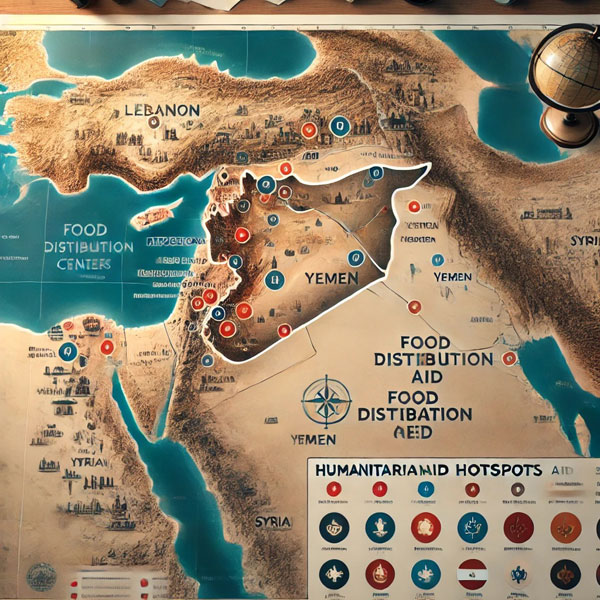What’s Behind the Latest Middle East Peace Talks? An In-Depth Look at Diplomatic Challenges and Humanitarian Efforts
The Middle East remains a focal point of international diplomacy, with ongoing peace talks to address urgent humanitarian needs and stabilize the region. From refugee displacement to food security, the challenges are multi-layered, requiring coordinated efforts across diplomatic and humanitarian fronts. Understanding the context and goals of these talks is vital to grasping the challenges and potential pathways to peace.
A History of Diplomacy and Humanitarian Crisis
Geopolitical rivalries, historical grievances, and an urgent humanitarian crisis have long complicated diplomatic efforts in the Middle East. Critical moments in Middle Eastern diplomacy, such as the Camp David Accords in the 1970s and the Oslo Peace Accords in the 1990s, set early foundations for diplomatic engagement. Despite these efforts, recurring conflicts and political tensions continue to undermine stability in the region, particularly in Syria, Yemen, and Palestine.
- Humanitarian Impact: According to recent data, nearly 50 million people across the Middle East face food insecurity, while over 11 million have been displaced. Reports from the United Nations and organizations like the Red Cross highlight that essential resources remain scarce in several areas.
- Ongoing Diplomatic Engagement: Diplomatic involvement has ramped up recently, with countries like the United States, the European Union, and neighboring Middle Eastern states working to facilitate dialogue. The recent Vienna summit saw over 30 nations participate in discussions to support humanitarian aid and strengthen regional stability.
Expert Commentary
In a recent statement, U.N. Secretary-General António Guterres underscored the urgency of aid distribution: “The humanitarian needs in the Middle East are immense and immediate. We cannot wait any longer to act.” Similarly, E.U. High Representative Josep Borrell emphasized that “a collaborative approach is essential to address not only the symptoms but the root causes of these crises.” Experts highlight that humanitarian aid alone will not be sustainable without robust diplomacy.
- Aid Worker Perspectives: According to aid workers, such as Dr. Laila Amara, a humanitarian coordinator in Syria, “One of our biggest challenges is access. Political hurdles make it difficult to reach communities in urgent need.”
- Analysts: Political analysts argue that economic sanctions and regional rivalries complicate the aid process. Dr. Ahmed Rahim from the Center for Middle Eastern Studies notes, “Sanctions, while politically motivated, often hamper critical aid efforts and deepen the humanitarian crisis.”

Want to stay informed on Middle Eastern diplomacy and humanitarian aid efforts? Explore more articles on recent peace talks, or subscribe to our newsletter for future updates and expert insights.